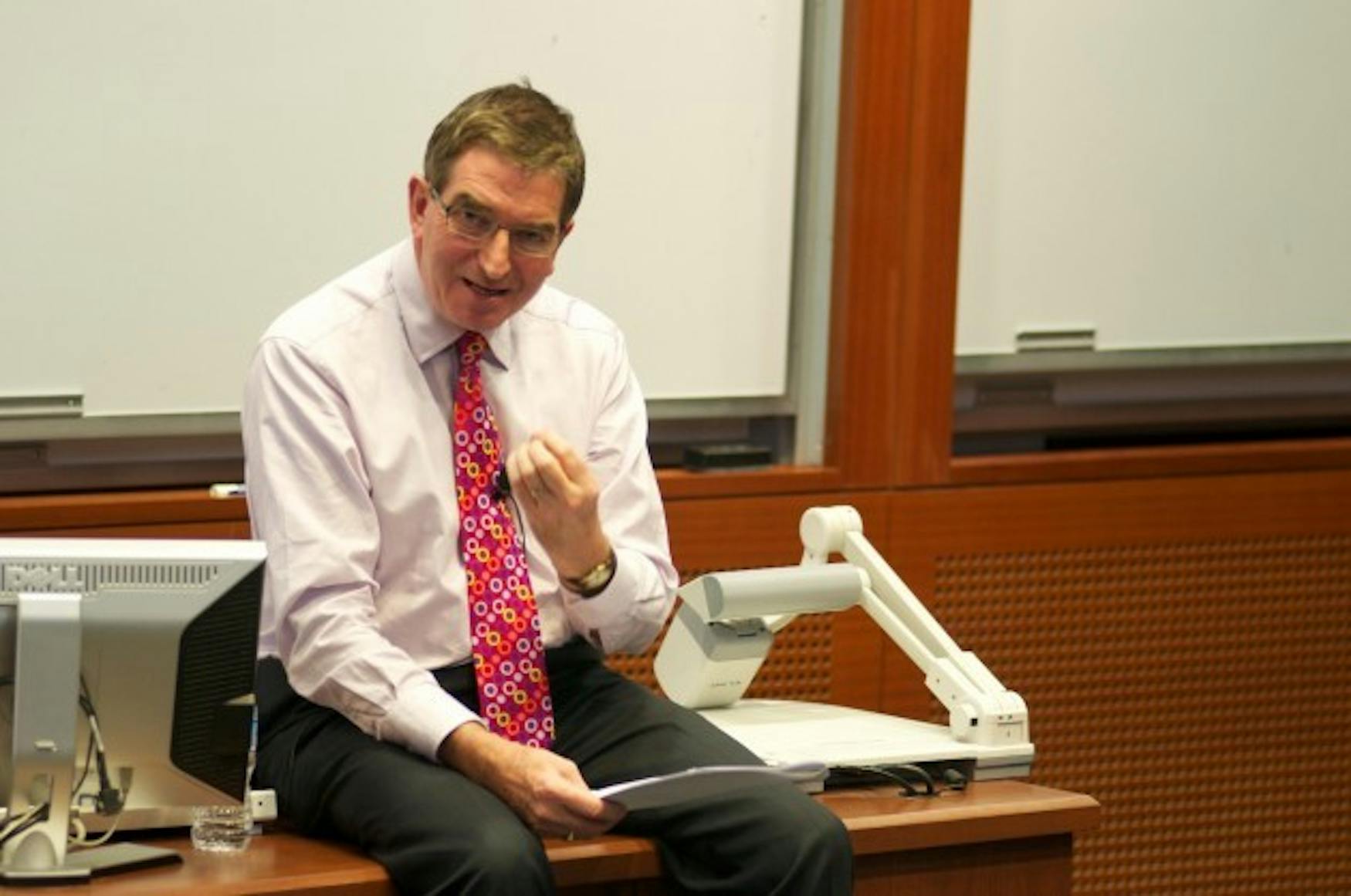Former CEO speaks on leadership in business
Niall FitzGerald, former chairman and CEO of Unilever and former deputy chairman of Thomson Reuters, spoke yesterday about leadership and the role of ethics in business. FitzGerald spoke at both a private lunch at the Faculty Club, where he was presented with the Perlmutter Award for Excellence in Global Business Leadership, and also later in the day in the Lee Lecture Hall at the International Business School.
FitzGerald is the second recipient of the Perlmutter Award, which is given by the IBS Perlmutter Institute for Global Business Leadership to "a leader who has had great success in the global economy … [and] demonstrated a commitment to society and the environment beyond the bottom line," in the words of Louis Perlmutter '56, co-founder of the Institute.
Perlmutter introduced FitzGerald as a person with "a very strong sense of corporate social responsibility" and the "prototype" for the award, while Bruce Magid, dean of IBS, called presenting the award to FitzGerald a "great honor."
FitzGerald's remarks at the lunch focused on the current economic climate and the responsibility of business leaders to "acknowledge what has gone wrong … to rebuild trust." FitzGerald criticized banks and business leaders for the actions that led to an economic crisis, emphasizing that "There is a difference between making money … and creating sustainable wealth." He encouraged what he coined "enlightened self-interest," or running a business morally not only because it is the right thing to do, but also because it makes the business more profitable.
"I don't think that regulation is the whole answer, or even part of the answer," said FitzGerald. "Regulation cannot be a substitute for individual responsibility."
In the question-and-answer session, FitzGerald addressed several issues, including the Occupy Wall Street movement, which he called "not surprising" because many people are "very unhappy for a very good reason."
In response to these types of protests worldwide, "Those of us who are lucky enough … to be very successful under this system have to stop now and think about the things we haven't done right," said FitzGerald in an interview with the Justice.
Later in the day, FitzGerald gave an informal lecture in IBS on leadership. The lecture emphasized trust, the ability to deal with change and learning from mistakes as important qualities in a leader. FitzGerald called his mistakes "the most important qualification I have," and described his role as CEO of Unilever as "chief anarchist," constantly inspiring change within the company.
In an interview with the Justice, FitzGerald expressed his admiration of Brandeis students' "curiosity and need to understand" the current economic situation. However, FitzGerald also stipulated that there are no "clear-cut answers" to the global economy's problems.




Please note All comments are eligible for publication in The Justice.